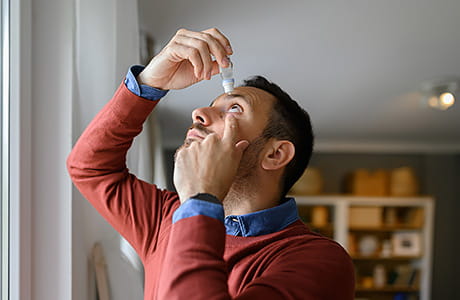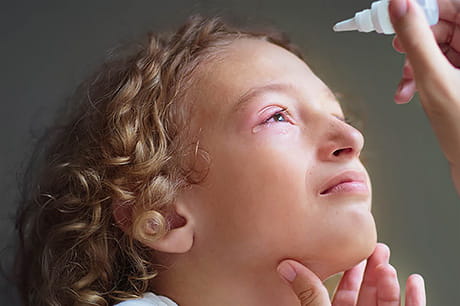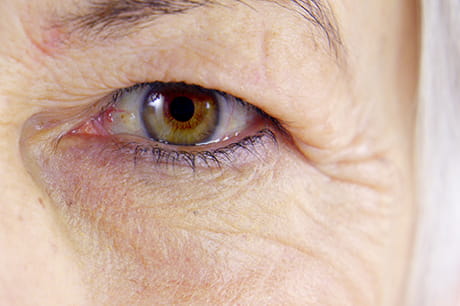What to know about eye drop recalls
Shopping for artificial tears? Check for recalls or talk to your pharmacist first.
In 2023, certain eye drops were recalled due to the possibility of bacterial or fungal contamination — both of which could cause serious infections, leading to vision damage.
Here’s what to know about eye drop recalls, including where to find more information and how to make sure the over-the-counter products you use are safe.
What eye drops have been recalled?
Eye drops, also known as artificial tears, are used in treating eye dryness. They’re widely available in stores and online and are usually perfectly safe to use.
But to be safe, eye drops need to be sterile. In October of 2023, reports of bacterial contamination led the U.S. Food and Drug Administration (FDA) to issue a recall of a specific list of eye drop products. Even if no proven infections are associated with reported contamination, the attitude of U.S. regulators — for your protection — is “better safe than sorry.”
All the eye drops that were recalled were either generic brands or store-brand products — no brand-name products were affected. Chain drugstores like CVS, Rite Aid and Target removed products affected by the recall from their store shelves and websites.
What to do if you use eye drops
If you use or are shopping for eye drops, first check the FDA’s list of drug recalls.
Spot your eye drop type on the recall list? Check to see if the National Drug Code (NDC) on your eye drops is one of the NDCs that’s been recalled. You’ll find this 10-digit number on the outer packaging of medications. If the NDC on your eye drops matches one of the NDCs on the recall list, the FDA advises discarding your eye drops right away.
And if you’re not sure whether your eye drops are on the list, it’s safest not to use them. “Buying new eye drops to protect your vision is worth the cost,” says Herbert Ingraham, MD, an ophthalmologist and director of the Geisinger Eye Institute. “Don’t take any chances with your eyes.”
Count on your pharmacist for safety advice
For trustworthy information about product recalls or product safety, talk to your pharmacist. They’ll know which products are included in recent recalls. And if needed, they can suggest alternatives to use instead.
Finally, remember: Prescription drug testing is much stricter than over-the-counter medication testing. So you can be confident that any medication prescribed by a doctor and dispensed by a pharmacist will be the safest option.
Next steps:
Learn about eye care at Geisinger
Red, itchy eye? It could be pink eye
Why your eyes won’t stop twitching





